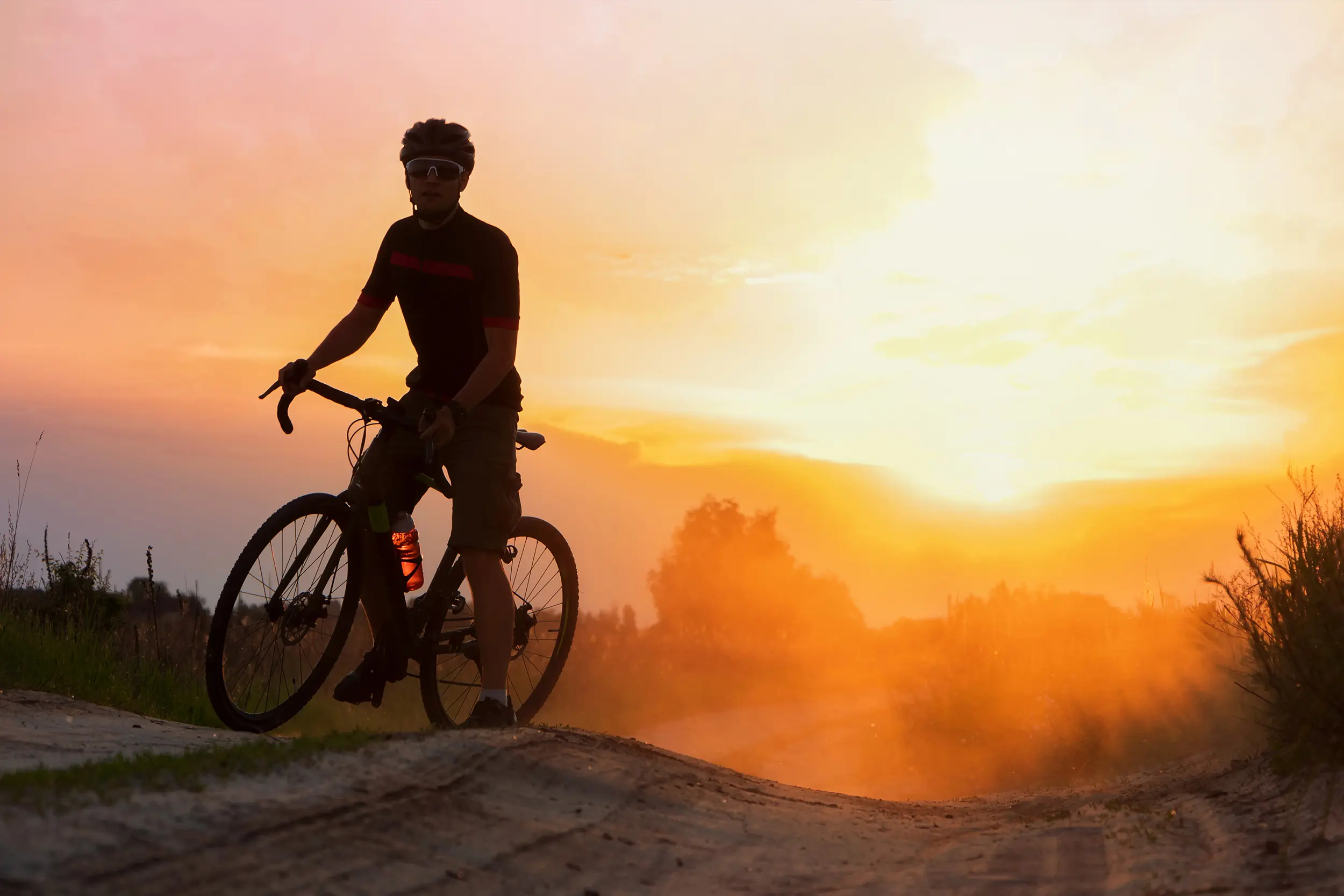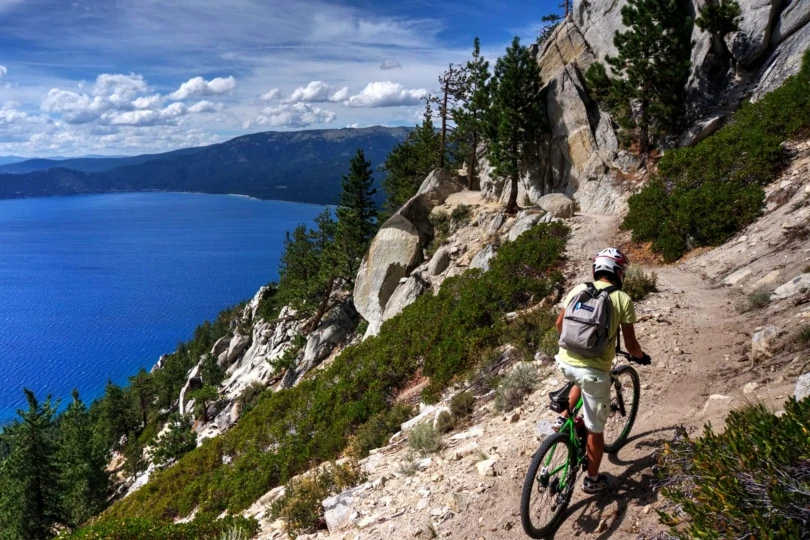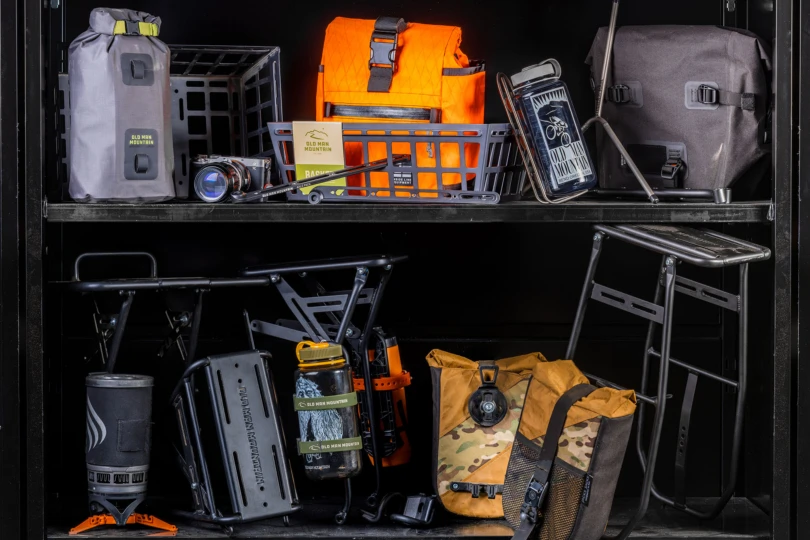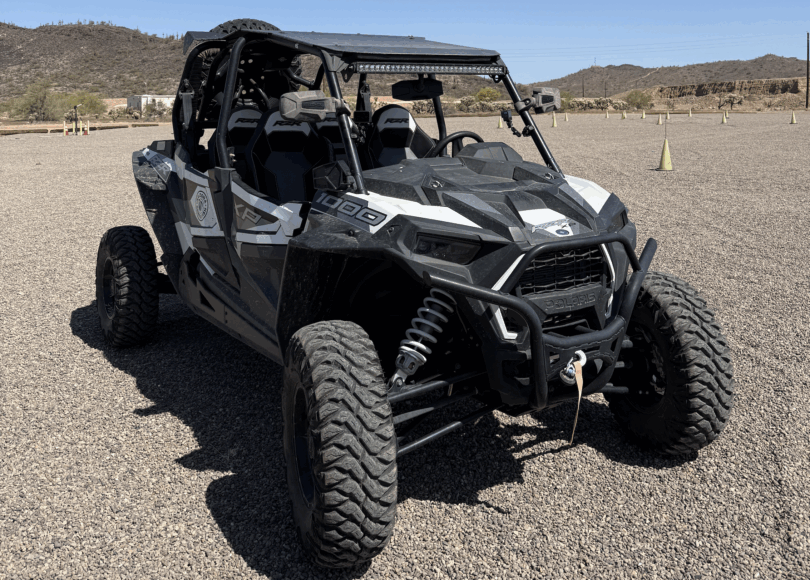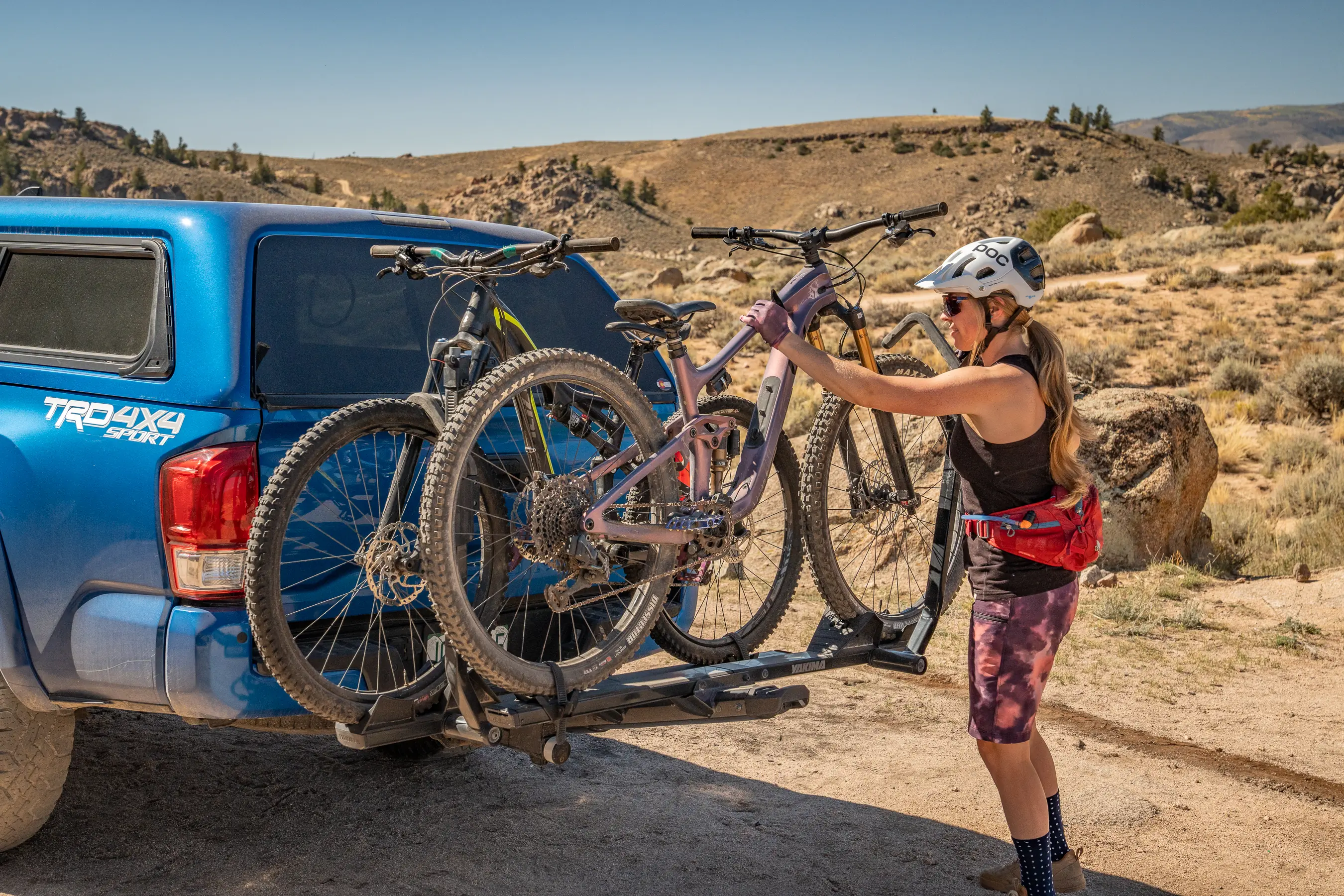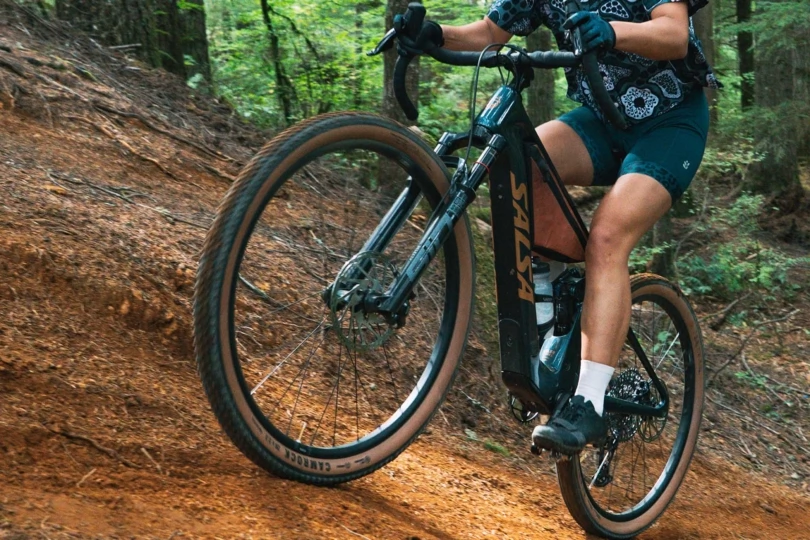On trips to Colorado, though, I’d always see a few ripping through the front range or hucking around at bike parks. But all too often, I’d admire their striking style and then move along, knowing I could probably never afford one.
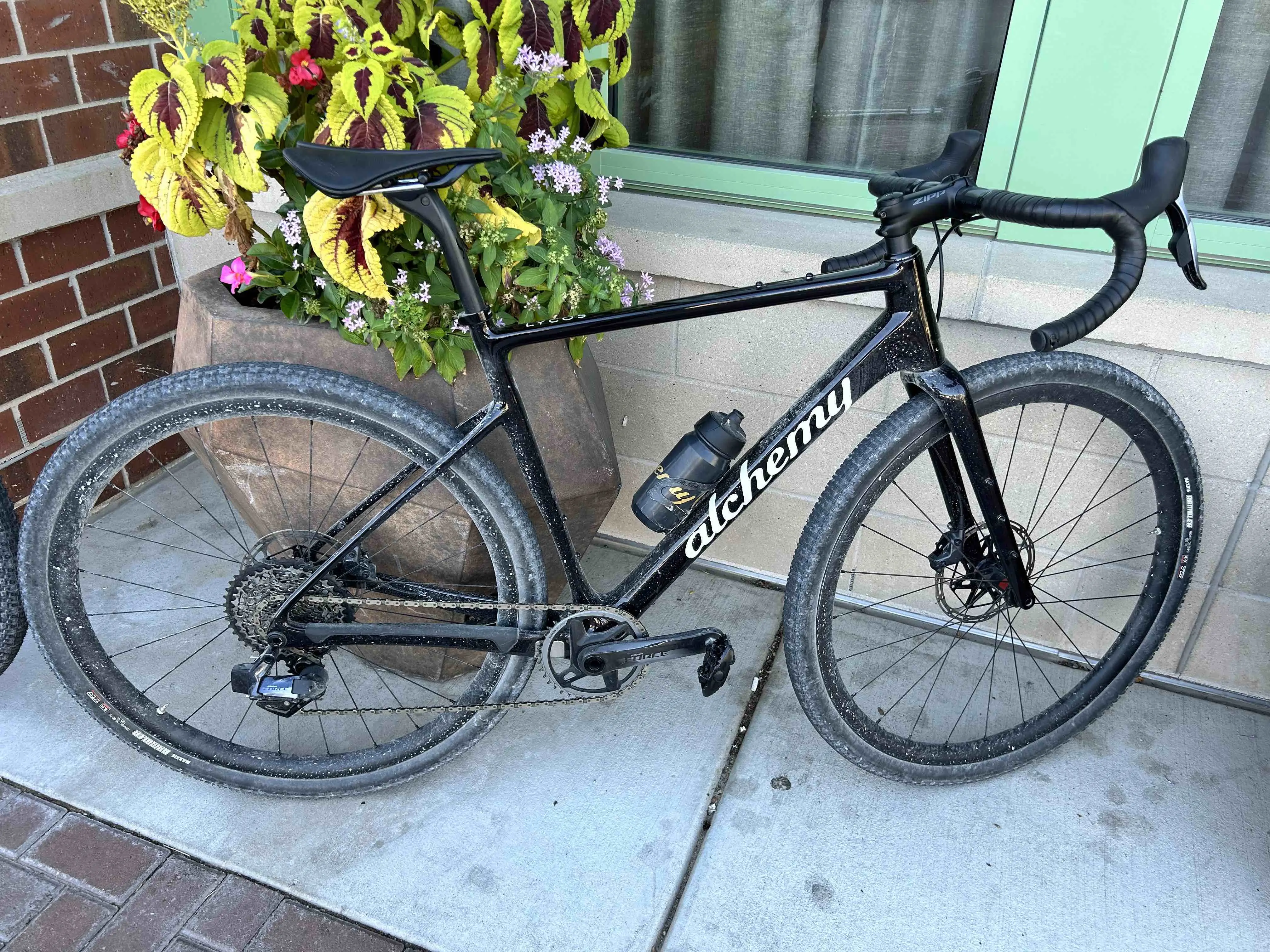
So, when I got the opportunity to hop over to Kansas to put the latest model of the brand’s all-road-styled Lycos through the paces in the same region as Unbound Gravel, I jumped at the opportunity. Before I ever hopped on the Lycos, I viewed Alchemy as a boutique brand. They are well known for custom, hand-built bikes crafted from high-end carbon and titanium and stacked with top-tier components.
The Lycos both looked and felt like that top-tier product I was expecting. But somehow, it still struck me as a little different. It comes off as more approachable when compared to the other gravel or all-road models the brand offers. Alchemy manufactures titanium frames that sell for a starting MSRP of $4,499 — just for the frame.
The Lycos has complete builds starting at an MSRP of $4,999 going up to $8,000. The frameset goes for $3,299. I know those price points are by no means cheap, but they are much more accessible to a much broader spectrum of cyclists.
I hit the dirt outside of Manhattan, Kan., knowing that I could actually own one of these bad boys. And I rode it accordingly.
Alchemy Lycos: All-Road and Rowdy
My first ride on the Lycos came at night. We suited up and took off from a cattle ranch with nothing but the stars and the beams of our lights to pave the way for a roughly 10-mile introductory handshake with the bike.
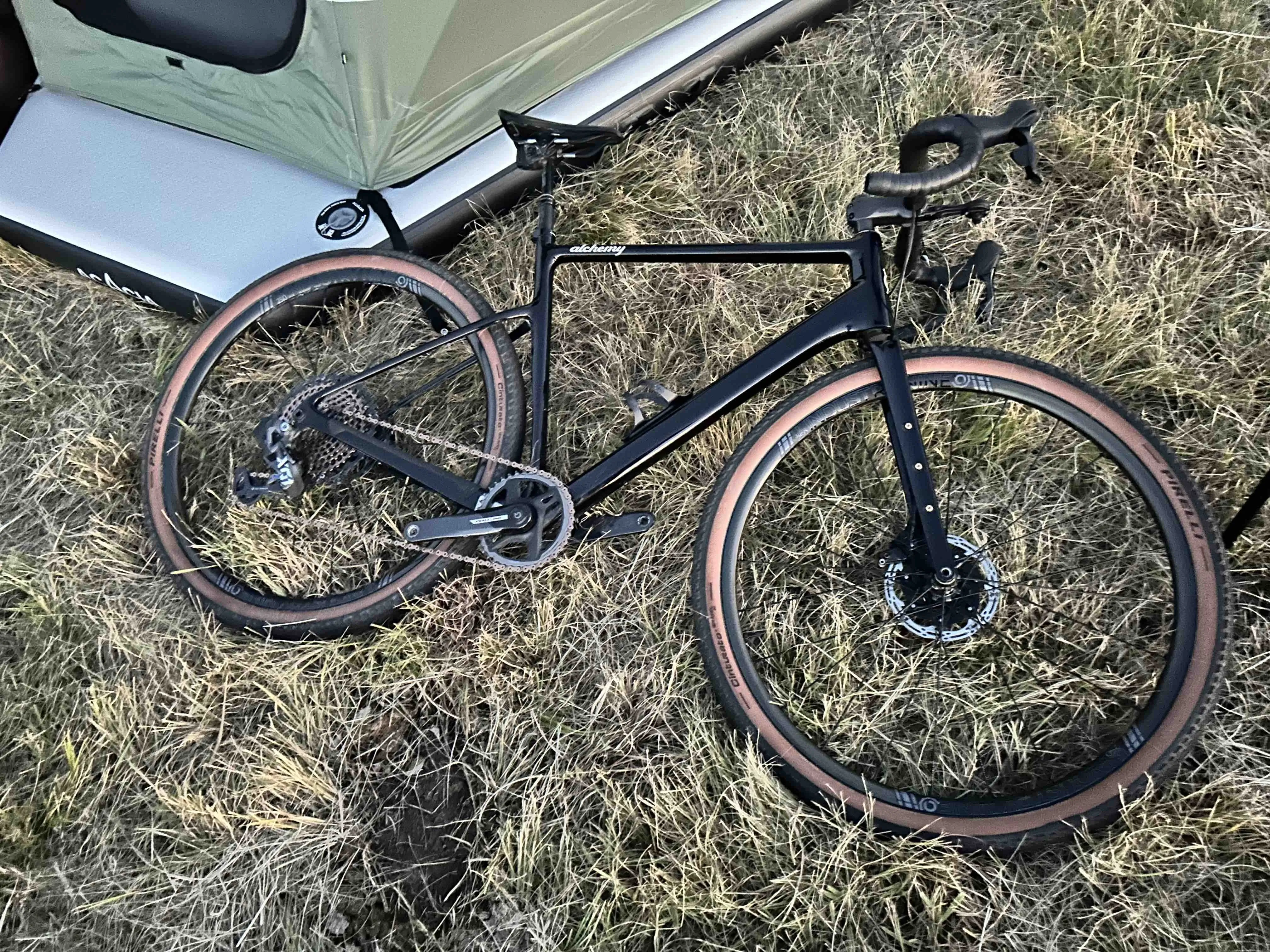
Given that we were riding in the dark in unfamiliar territory, I initially set off cautiously. I had no desire to overcook it into a loose corner or find a gravel section just gnarly enough to throw me off into the night. But that didn’t last.
The Lycos felt like it wanted to go fast and hard, and it had so many great things working for it that dialing it back was tricky. First, the Alchemy Premium Carbon Frame felt stiff, responsive, and supportive in the chunk.
The bike’s seat tube is bent, which at first glance appeared to be a design decision to increase tire clearance. That, however, isn’t the case. Alchemy says the sweep of the seat tube and dropped seat stays add compliance to the bike’s rear. This translates to about 15mm of travel or flex, while hi-mod carbon placed laterally increases stiffness. That makes for a ride that feels equal parts fast and forgiving.
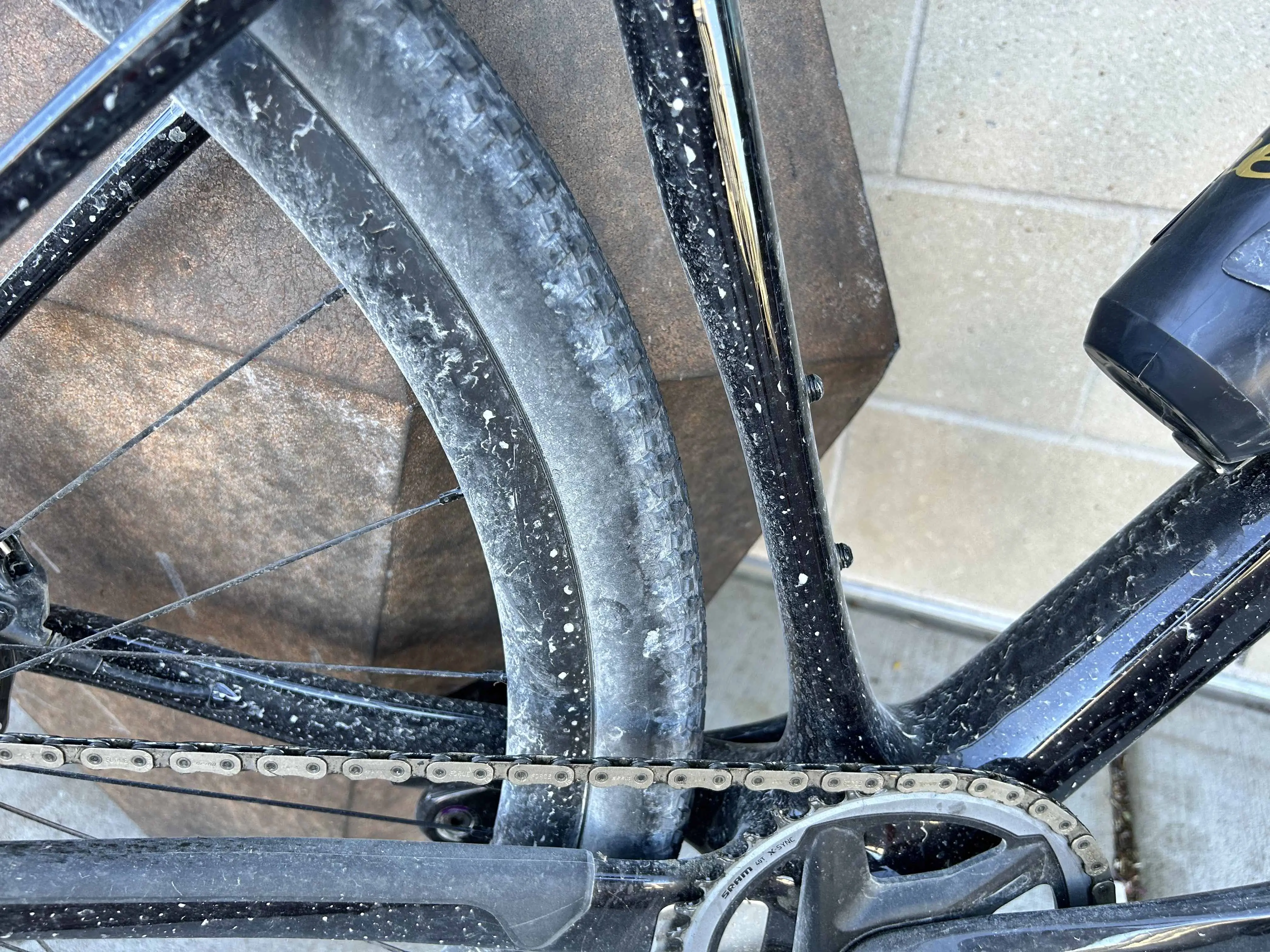



My build came equipped with the 1x SRAM Force XPLR groupset and burly 700x50c wheels that just gobbled up rocks. Even in the harshest sections of gravel, I felt planted and quick.
The next day, we transitioned to a bit of a longer, mixed-surface ride that included gravel, bike path, and road sections. The bike cruised everywhere with ease. I frequently found myself glued in the front of the pack with pretty minimal effort on the road, and then jamming into gravel at speed at every opportunity.
Even with much larger wheels than I’m used to, the bike retained its fast, agile, almost racey feel on the road. But it immediately showed its expertise in gravel the second the pavement ended.
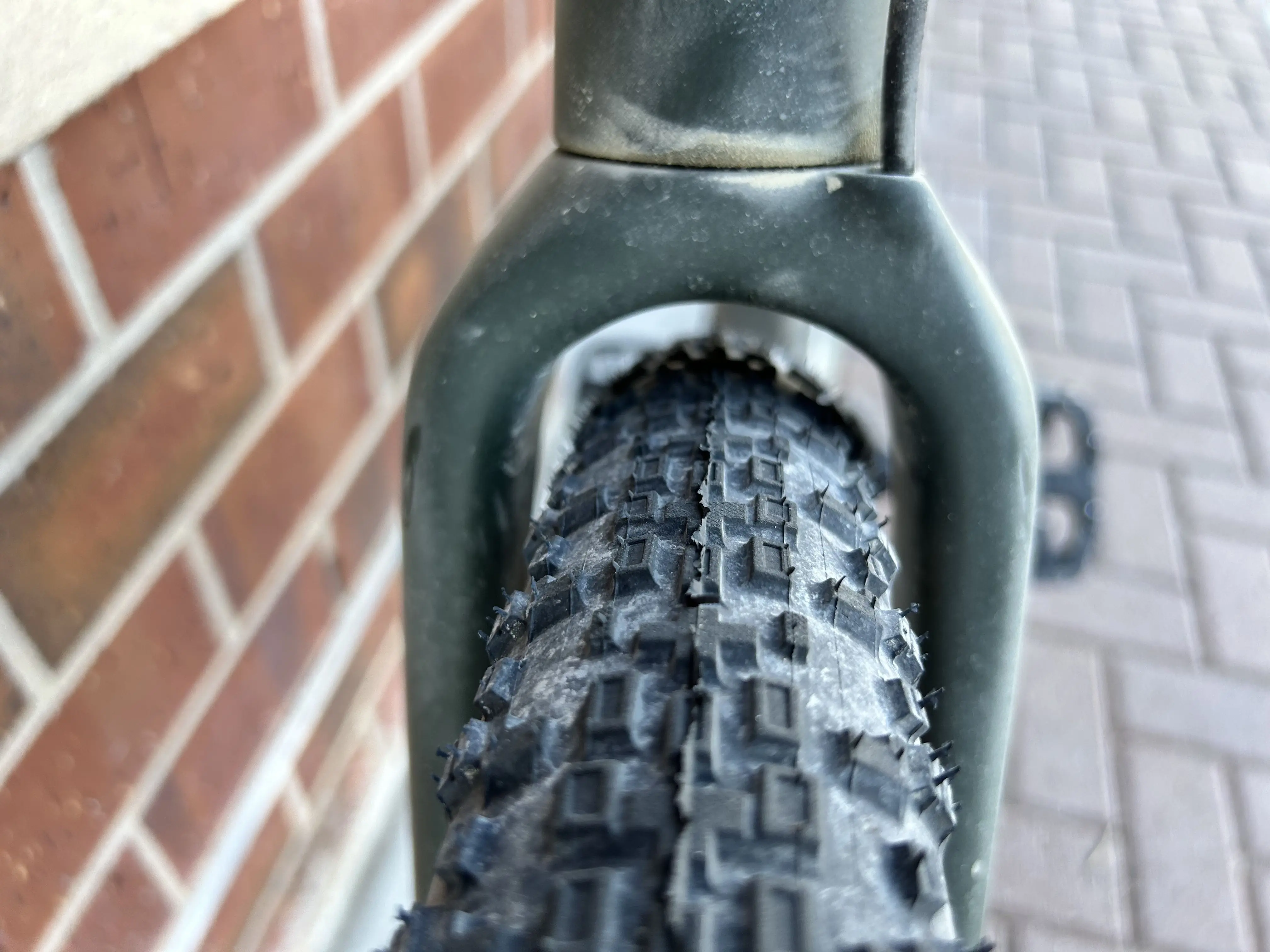



True to its gravel billing, the Lycos also comes decked out with mounts on the top tube, fork, and lower side of the downtube for ample storage. The front triangle is large enough to accommodate two bottles and a good-size bag.
Alchemy Lycos Builds and Pricing
For those who have followed the life and development of Alchemy bikes over the years, the brand has always sat at the top of both performance and price points.
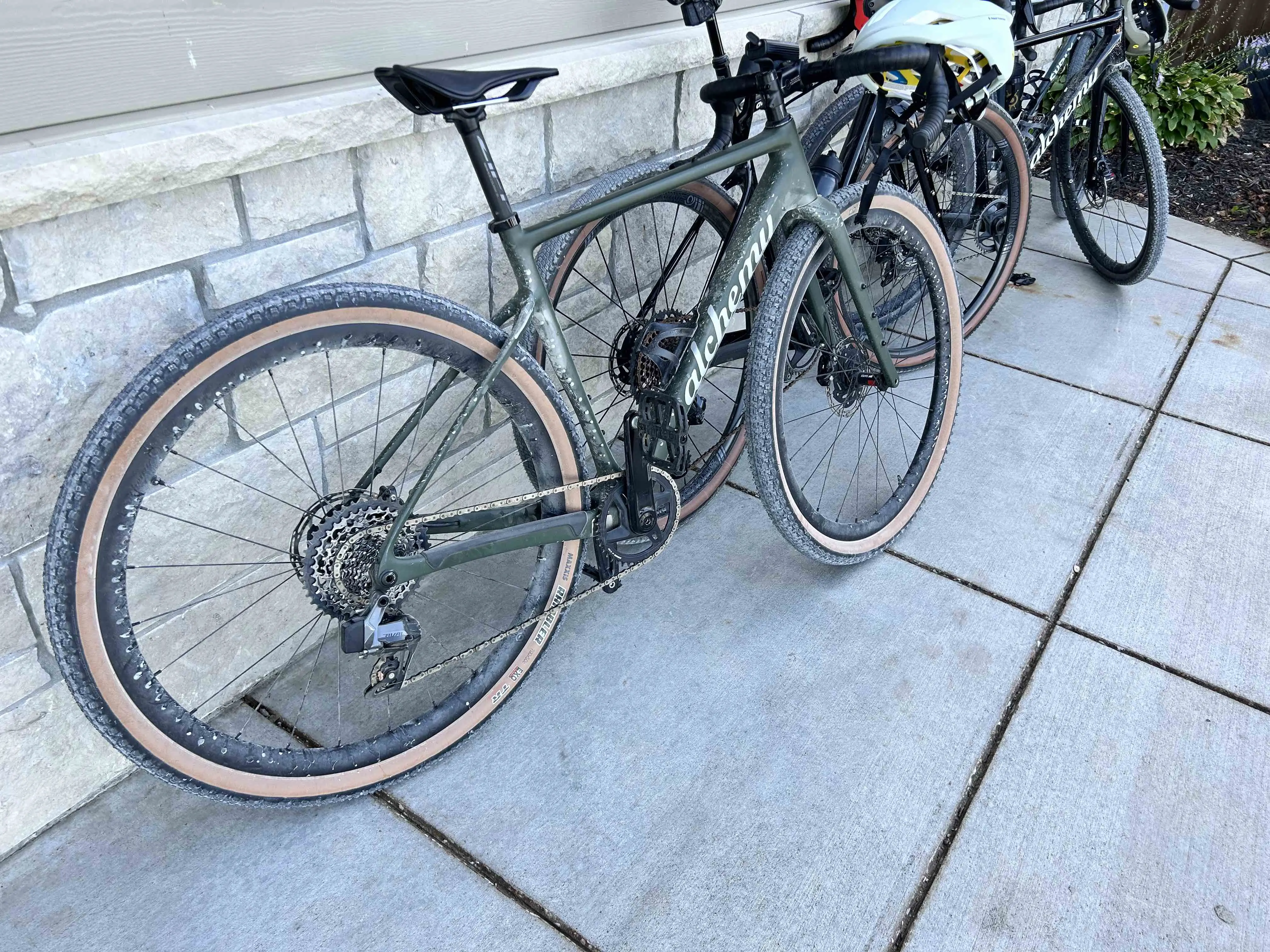



With its most profound roots in mountain biking, Alchemy has fielded a fleet of both carbon and titanium models. These include the Arktos and Argos mountain bikes and Atlas and Ronin titanium all-road and race models.
The Lycos pulls from the carbon know-how of Alchemy’s mountain bike realm to create something truly meant to go anywhere but for a considerably more approachable price point than one would expect from Alchemy. But why?
Like many of Alchemy’s other bikes, the Lycos has been handmade in Colorado for the last few years. The newest Lycos fleet, however, emerges from a partner plant in Taiwan, where the brand currently also produces its Arktos frames. Alchemy says working with the partner factory in Taiwan still allows the brand to dictate the exact same carbon layup schedule as it would in Colorado, but for a considerable cost cut. While it is cheaper, it is essentially the same bike, according to Alchemy.
And if you had any doubts, the bike absolutely shredded. It expertly threaded the needle between one-of-a-kind builds and an emerging stable of ready-made bikes that still do the Colorado brand justice.
The Lycos comes in various options to suit riders with different traits. The base model comes with the SRAM Rival AXS groupset for an MSRP of $4,999. The Shimano GRX Di2 model goes for an MSRP of $6,299, while the SRAM Force XPLR AXS and SRAM Force X01 AXS builds sell for an MSRP of $6,499 and $6,774, respectively. The top-end SRAM Red XPLR AXS build goes for an MSRP of $7,999, and the frames alone are $3,299.
Depending on the build, riders can outfit the bike for almost anything, including cyclocross, gravel racing, touring, or backcountry adventuring.
Final Thoughts
The 2 days I spent on the Lycos were full of fun, fast rides. The bike handled exceptionally well in variable conditions and across different challenging terrain. With mounts littered all over the bike and its enormous tire clearance, the Lycos stands as a do-it-all rig that could tackle gravel races or big bikepacking adventures.
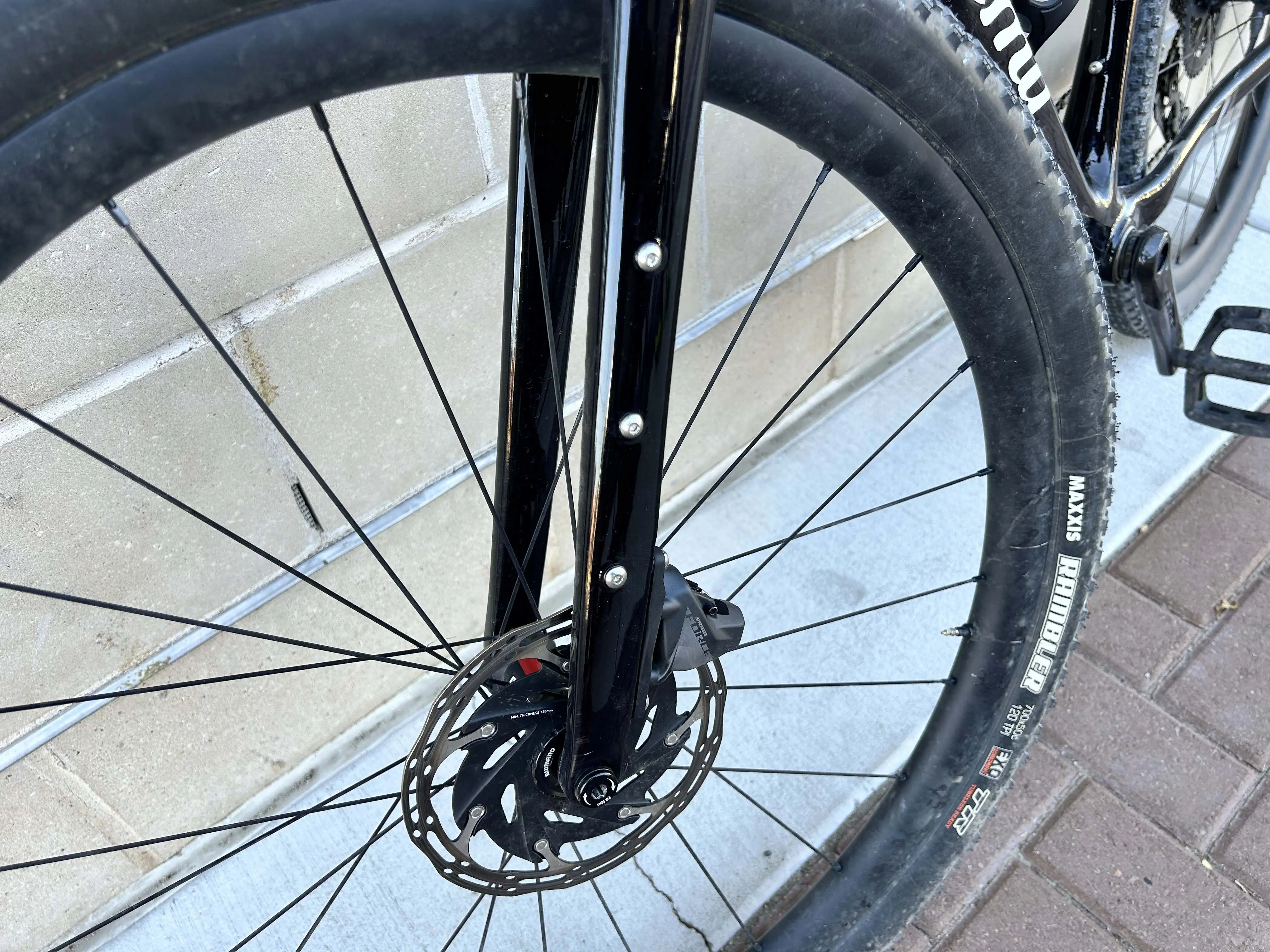



Now that it is priced in a much more agreeable range, it is worth a look for folks who think Alchemy bikes are out of reach.
For those who still want that “handmade in Colorado” build, Alchemy can still build just about whatever you want. But it is nice to have options that can bring more riders into the fold.

